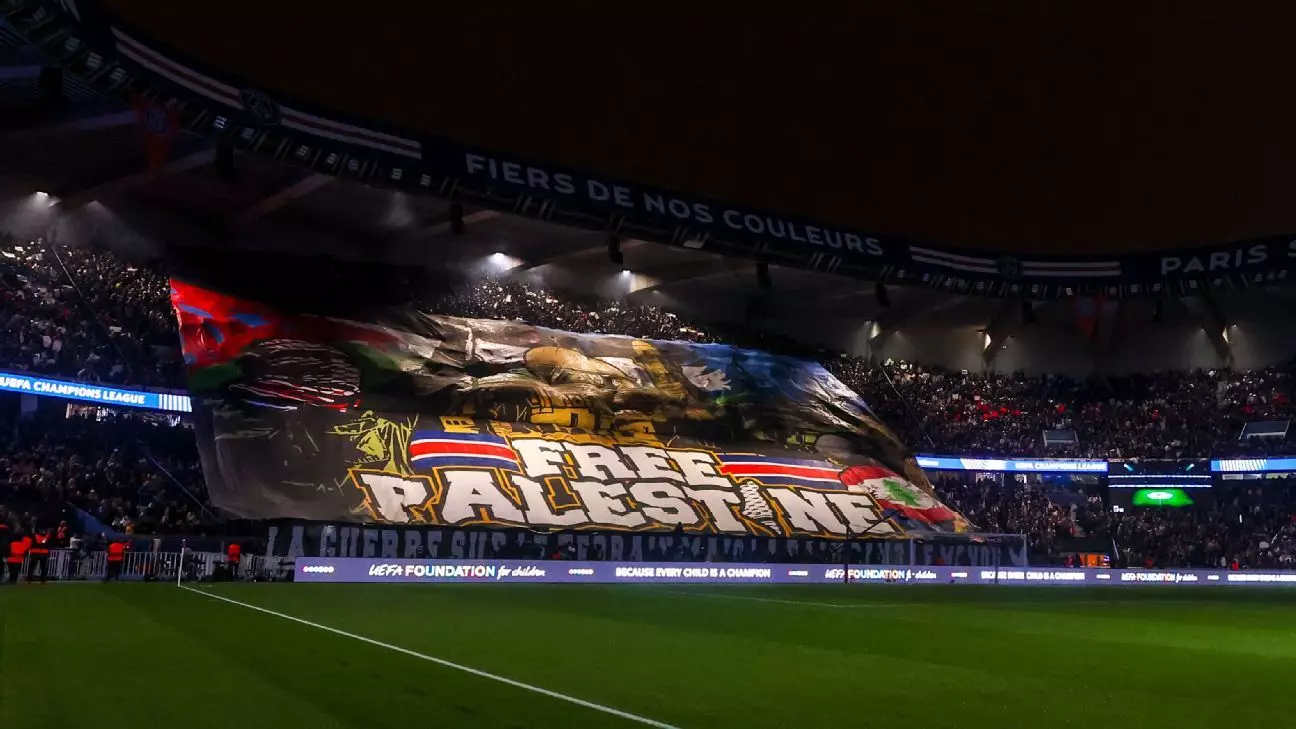On Wednesday night, prior to the UEFA Champions League match between Paris Saint-Germain (PSG) and Atlético Madrid, an unexpected event occurred that has drawn significant attention and controversy. The Auteuil Kop, PSG’s passionate support group, unfurled a massive banner proclaiming “Free Palestine.” This act was laden with political implications, occurring just days before France’s Nations League match against Israel in Paris. Underneath the bold proclamation, the supporters added a poignant message: “War on the pitch, but peace in the world.” This statement encapsulates the contradiction of sporting events often being overshadowed or influenced by global conflicts.
The display sparked immediate reactions, highlighting the ongoing debates about the appropriateness of political expressions at sporting events. PSG quickly distanced itself from the actions of the fans, asserting that they had no prior knowledge of the banner and advocating for the Parc des Princes as a space strictly devoted to the appreciation of soccer. The club’s statement underscored their commitment to maintaining a neutral environment, clearly opposing any political messaging within the confines of their stadium. The contrasting messages evoke a larger question: should sports serve as platforms for political statements, or should they remain a sanctuary for individuals seeking to escape from global anxieties?
Government and Public Reactions
The incident drew the attention of French Interior Minister Bruno Retailleau, who deemed the banner’s presence as “unacceptable.” His comment reflected the government’s concern regarding political expressions manifested in public sporting events. When confronted with the possibility of sanctions against the club, Retailleau indicated his openness to pursuing a course of action, which showcases the strained relationship between governing authorities and the realm of sports amidst rising political tensions. The psychological landscape surrounding this event becomes even more complex given France’s demographics. The country is home to both a significant Jewish community and a substantial Muslim population, making any political gesture within a nationwide sporting event particularly sensitive.
Such incidents are not unprecedented; similar situations have unfolded in other European countries. For instance, Celtic FC faced a fine last year due to fans displaying Palestinian flags during a Champions League encounter, signalling that UEFA and individual clubs might take stringent stances against politically charged expressions. Given current societal views across Europe, the debate about the appropriateness and repercussions of mixing sports with political statements will likely continue to amplify, as fan bases increasingly view these arenas as platforms for broader advocacy.
As sports evolve into a domain intertwined with societal concerns, the question remains: where do we draw the line? The PSG event has sparked discussions around the necessity for political statements within sports and the consequences that follow. Fans desire the freedom to express their beliefs, while governing bodies and clubs strive to maintain decorum within their venues. This incident serves as a pivotal moment, illustrating the complex relationships between sports, politics, and community sentiments—an ongoing dialogue expecting no conclusion but rather a continuous unfolding on the world stage.

